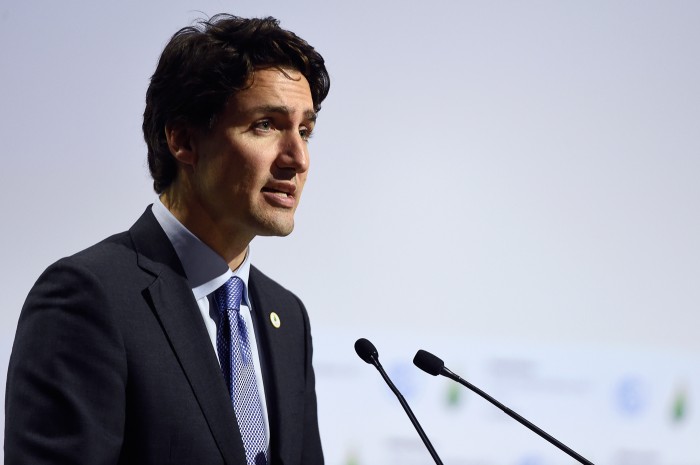Canada’s Carbon Tax Needs to Spread South of the Border
Nobody likes taxes. So it’s a brave move by Justin Trudeau, Canada’s prime minister, to announce that the entire country must pay if it continues to burn fossil fuels.
The policy change will demand that Canada’s provinces and territories either put a direct tax on carbon emissions or else adopt a cap-and-trade system. The former will be set at 10 CAD ($7.60) per ton, rising by 10 CAD per year until 2022, when it will top out at 50 CAD ($38) per ton.
In a rousing address to the Canadian House of Commons, Trudeau explained:
“There is no hiding from climate change. It is real and it is everywhere. We cannot undo the last 10 years of inaction. What we can do is make a real and honest effort—today and every day—to protect the health of our environment, and with it, the health of all Canadians.”
The move is undoubtedly a positive step toward encouraging the adoption of renewable energy. Though it isn’t the most aggressive carbon tax ever suggested, it is, crucially, being enacted as policy—signalling a strong commitment on Canada’s part to reduce its carbon emissions.

The announcement was part of a discussion within the Canadian government that kicked off Monday about whether the country should ratify the Paris accord on climate change. It’s expected to do so later this week.
America’s next president could learn a lot from Trudeau’s example. While Donald Trump may think that climate change is a concept created and promulgated by the Chinese (something that, at last week’s presidential debate, he denied having tweeted), Hillary Clinton’s environmental plan isn’t materially much more effective at present. She no doubt thinks the mention of any kind of tax meant to reduce the use of fossil fuels would be political suicide.
She’s probably right. But there are still plentiful supplies of coal, oil, and natural gas that we could go on using for decades if governments don’t make clear and dramatic policy changes to stop it from happening. Indeed, studies by energy economists suggest that unless governments pass new taxes on carbon emissions, we’ll keep using fossil fuels until they run out.
Canada’s doing something about it. Now the U.S. needs to.
(Read more: AP, “Hillary Clinton’s Climate Plan Needs a Carbon Tax,” “The Paris Climate Accord Just Passed a Crucial Threshold,” “Will We Ever Stop Using Fossil Fuels?”)
Keep Reading
Most Popular
Large language models can do jaw-dropping things. But nobody knows exactly why.
And that's a problem. Figuring it out is one of the biggest scientific puzzles of our time and a crucial step towards controlling more powerful future models.
How scientists traced a mysterious covid case back to six toilets
When wastewater surveillance turns into a hunt for a single infected individual, the ethics get tricky.
The problem with plug-in hybrids? Their drivers.
Plug-in hybrids are often sold as a transition to EVs, but new data from Europe shows we’re still underestimating the emissions they produce.
Google DeepMind’s new generative model makes Super Mario–like games from scratch
Genie learns how to control games by watching hours and hours of video. It could help train next-gen robots too.
Stay connected
Get the latest updates from
MIT Technology Review
Discover special offers, top stories, upcoming events, and more.